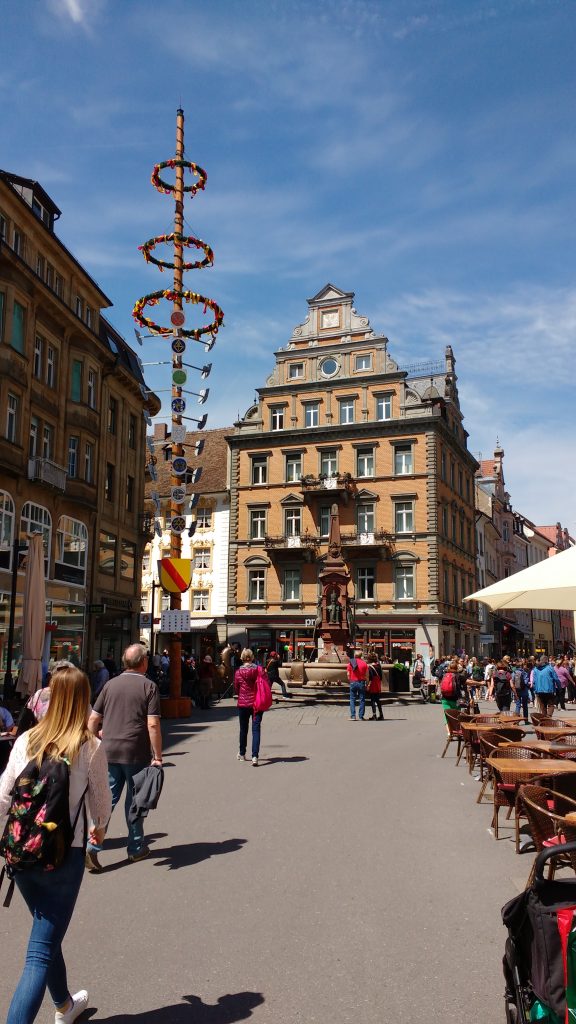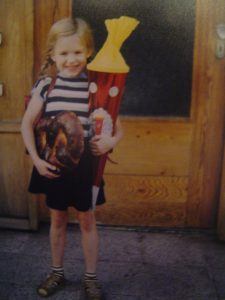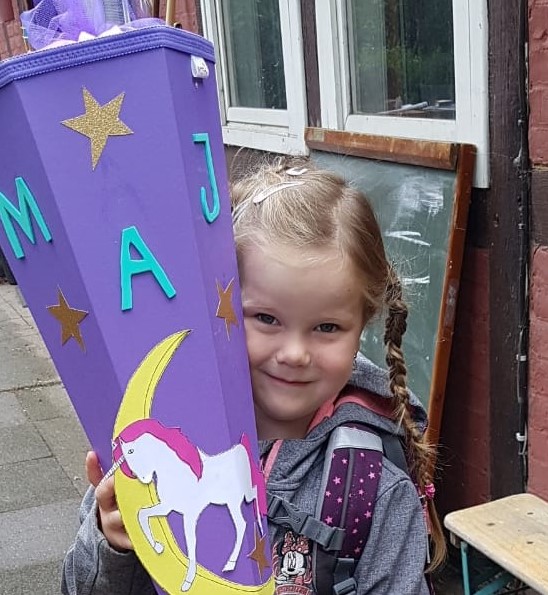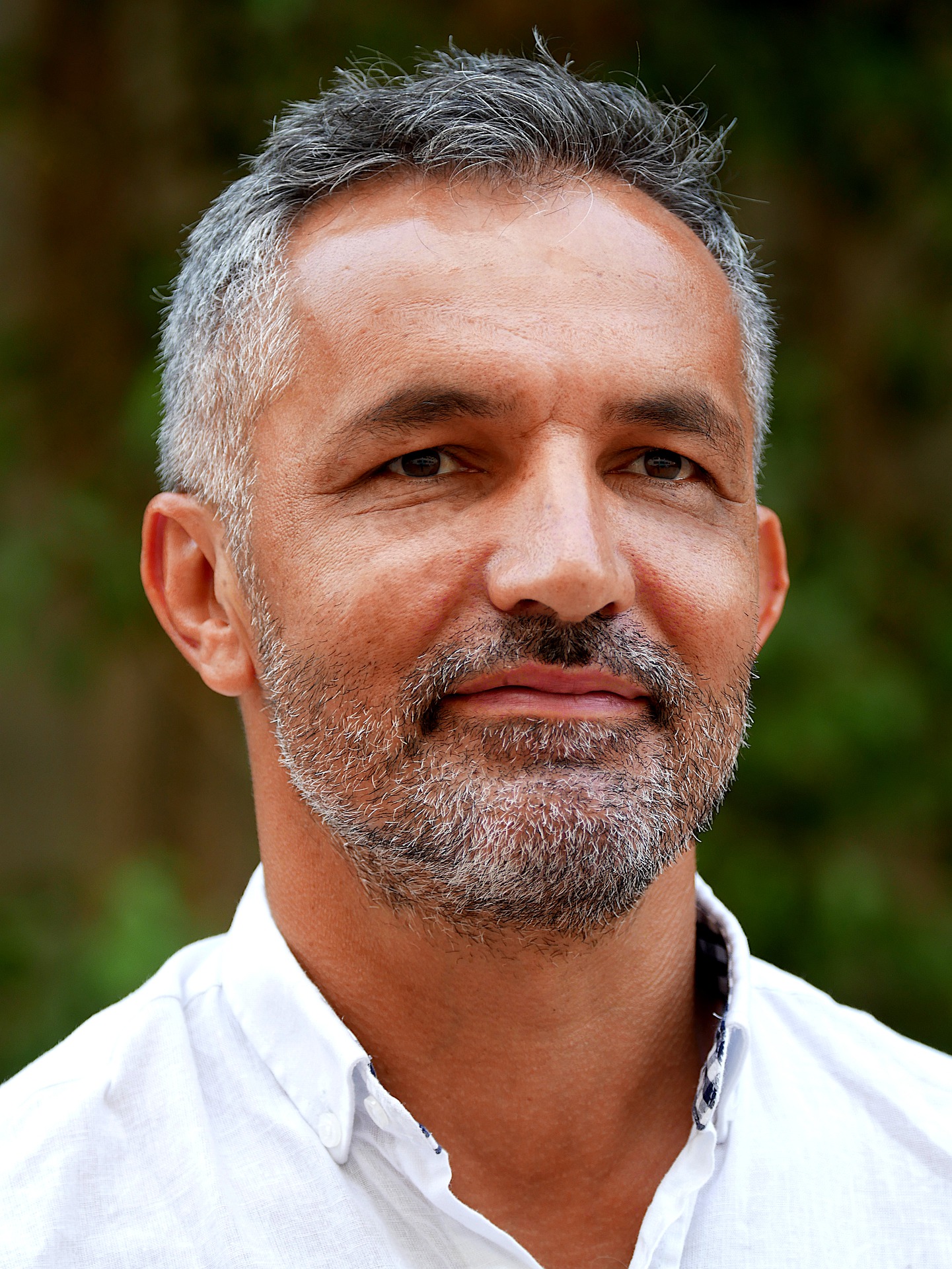Einheit 5.4 (online)
![]() Grammatik
Grammatik
Perfect Tense (2)
In 5.3, you started to see more examples of irregular past participle forms:
Ich habe das Fahrrad repariert.
Lexa hat uns alle eingeladen und unser Essen bezahlt.
Please work through the following presentation to learn even more about the perfect tense.
*Achtung* Here is a list of common irregular verbs that you can print out and use as a reference guide.
![]() Die Geburtstagsparty. Jessica und Jakob treffen sich auf dem Marktplatz. Hören Sie zu und beantworten Sie die Fragen.
Die Geburtstagsparty. Jessica und Jakob treffen sich auf dem Marktplatz. Hören Sie zu und beantworten Sie die Fragen.
 |
|
Der erste Schultag
|
In Einheit 2.4, you learned about the German school system. Do you remember what children receive on the first day of school? For German children, the first day of (elementary) school is a big event! As there is no pre-school in Germany, starting grade 1 in elementary school is a clear break from the playful kindergarten or daycare that most kids attend before. It signifies the start of their 9-13 years of education that follow and as such, it is celebrated in style. The most important item that children receive on their first day of school is the “Schultüte” or school cone, made out of paper and filled with sweets, toys, small gifts, and school supplies. In some regions of Germany, the “Schultüte” is therefore also sometimes called a “Zuckertüte“. “Schultüten” are meant to “sweeten” the children’s entry into the more serious world of school and education. The tradition of the “Schultüte” goes back to the late 19th century, but it is still very much alive today. Children receive their “Schultüten” from their godparents or parents and take them to school on the first day. After school is over, they unpack their “Schultüten” at home and enjoy their presents. The first day of school is sometimes also celebrated by having cake in the afternoon with relatives and neighbors. |

Claudias erster Schultag! |
![]() Übung 1: Majas erster Schultag! Wählen Sie das richtige Hilfsverb.
Übung 1: Majas erster Schultag! Wählen Sie das richtige Hilfsverb.
 |
|
![]() Grammatik
Grammatik
Simple Past Tense: “haben” and “sein”
Usually, when talking about events that happened in the past, we use the perfect tense. However, the verbs “haben” and “sein” are more commonly used in the simple past tense instead of the perfect tense.
You have seen examples of the simple past tense in Thomas’ and Mario and Silvia’s description of their weekends:
Thomas hatte ein total langweiliges Wochenende!
Sein Fahrrad hatte einen platten Reifen.
Silvia und ihre Freunde waren nach dem Frisbeespiel ein bisschen müde.
Das Essen im afghanischen Restaurant war sehr gut.
Just like when you learned these verbs in the present tense, you must memorize the simple past form of these verbs too.
| sein | haben | ||
| ich war | I was | ich hatte | I had |
| du warst | you were | du hattest | you had |
| er/sie/es war | he/she/it was | er/sie/es hatte | he/she/it had |
| wir waren | we were | wir hatten | we had |
| ihr wart | you (plural) were | ihr hattet | you (plural) had |
| sie/Sie waren | they/you (formal) were | sie/Sie hatten | they/you (formal) had |
*Achtung* DO NOT use the simple past tense form of “haben” and “sein” as your auxiliary verb when forming the perfect tense.
![]() Übung 2: Anna war krank.
Übung 2: Anna war krank.
![]() Übung 3: Herr Romano ist mit dem linken Fuß aufegestanden.
Übung 3: Herr Romano ist mit dem linken Fuß aufegestanden.
|
|
 |
![]() Übung 4: Das Perfekt wiederholen
Übung 4: Das Perfekt wiederholen
![]() Wortschatz in Quizlet:
Wortschatz in Quizlet:
![]() Was wissen Sie jetzt? Das Quiz ist in der nächsten Unterrichtsstunde.
Was wissen Sie jetzt? Das Quiz ist in der nächsten Unterrichtsstunde.
Media Attributions
- headphones © IO-Images is licensed under a Public Domain license
- Marktplatz © ckost is licensed under a CC BY-NC-SA (Attribution NonCommercial ShareAlike) license
- star © IO-Images is licensed under a Public Domain license
- Maja © ckost is licensed under a All Rights Reserved license
- link © IO-Images is licensed under a Public Domain license
- check mark © janjf93 adapted by Solomon Hajramezan is licensed under a Public Domain license
to get up on the wrong side of the bed

